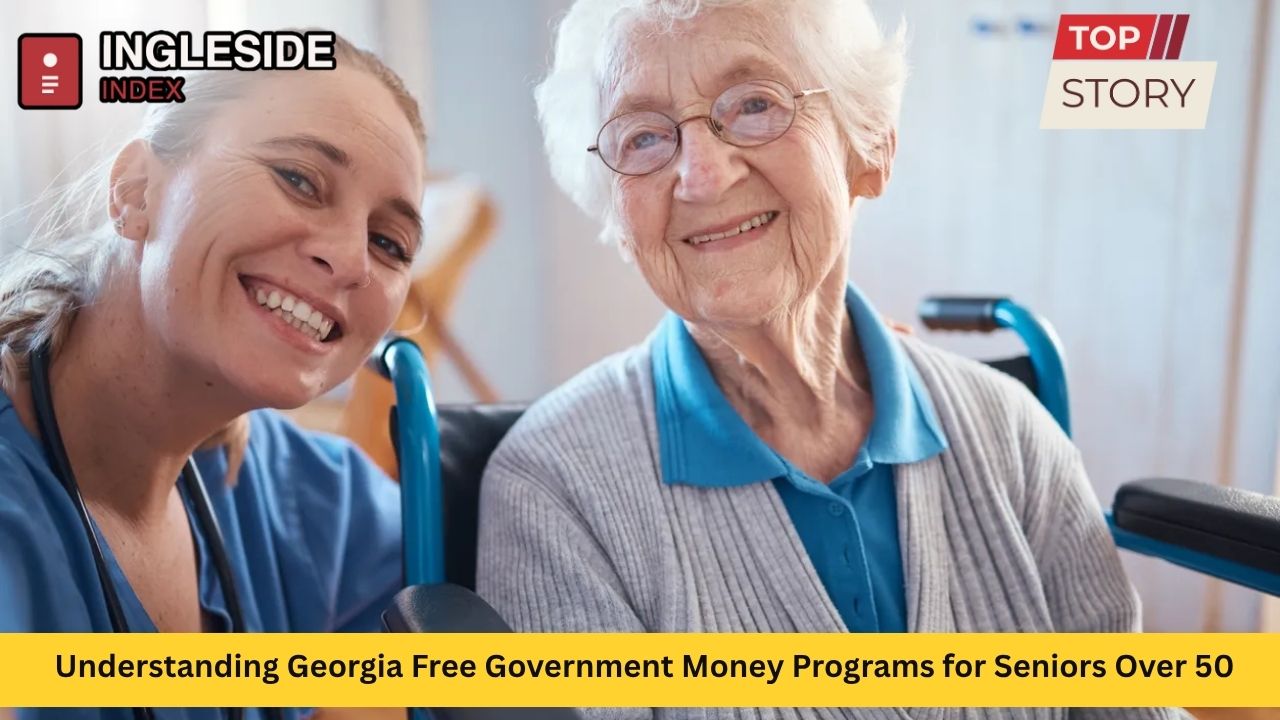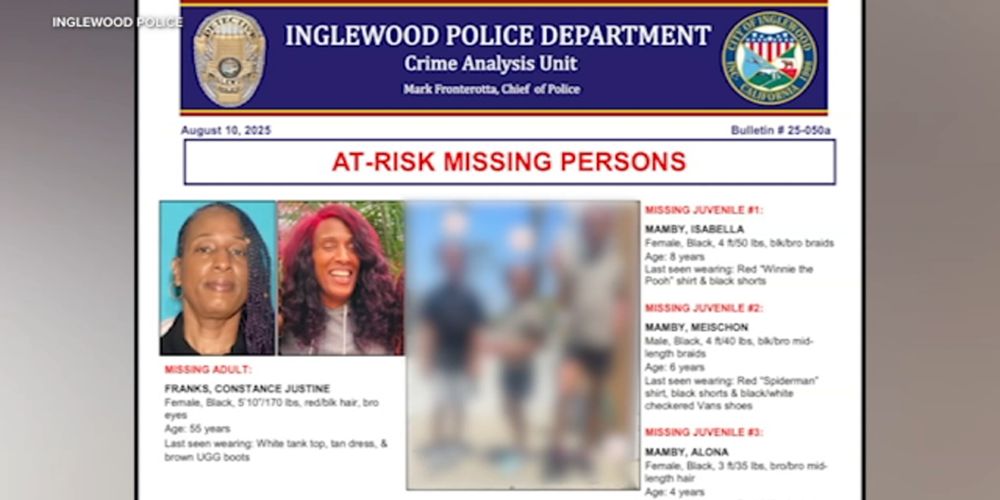Navigating your senior years in Georgia can be both rewarding and challenging, especially when it comes to financial security. The good news is, the Peach State offers a robust network of free government money programs, assistance, and resources specifically tailored for residents over 50. Whether you live in Atlanta’s bustling metro, the quiet suburbs of Marietta, the scenic charm of Savannah, or the historic streets of Augusta, opportunities exist to help you maintain independence, manage health costs, and thrive financially in your golden years.
Introduction: The Landscape for Georgia’s Seniors
Georgia’s rapidly growing senior population—over 1.7 million adults aged 50 and up—enjoys the benefit of numerous programs enacted at both state and federal levels. As the Baby Boomer generation ages, cities like Columbus, Macon, and Athens are seeing a surge in demand for senior-specific services. Government agencies, nonprofits, and local governments partner to create a safety net that helps meet the diverse needs of Georgia’s aging adults, from health care to housing, food assistance to job training, and beyond.
Who Qualifies for Senior Assistance Programs in Georgia?
Senior assistance programs in Georgia usually target residents aged 50 or older, with some specific benefits kicking in at ages 55, 60, 62, or 65. While eligibility depends on several factors, such as income, health status, and residency, the State of Georgia offers a wide selection of universal and needs-based programs. For example, older adults in high-cost areas like Sandy Springs or lower-income neighborhoods in Albany may both find help meeting essential needs.
Types of Free Government Money Programs for Seniors
Healthcare Assistance and Insurance Programs
Health care is the most significant concern for many seniors in Georgia. Residents turning 65 become eligible for Medicare, offering essential medical coverage. However, Georgia also provides state supplements such as Medicaid programs for those with limited incomes, and unique Medicaid waivers which help qualifying seniors afford home care and avoid costly nursing home placements.
-
Medicaid Waivers and Community Care Services Program (CCSP): Provide financial help for in-home care, adult day care, personal care, and skilled nursing. Available to seniors across cities like Augusta, Valdosta, and Dalton.
-
Independent Care Waiver Program (ICWP): Designed for those aged 65 or older or people with severe physical disabilities; helps keep seniors in their own homes instead of institutional care.
Many Georgia counties offer elder health screening clinics, flu shot campaigns, and local wellness initiatives, often at no cost to seniors. Metro Atlanta offers some of the most extensive networks, but rural towns like Tifton and Rome increasingly have mobile health units to reach seniors in outlying areas.
Prescription Drug and Medical Assistance
Prescription drug costs can strain fixed incomes. Georgia’s partnership with Medicare Part D and Prescription Assistance Programs helps seniors in cities such as Macon and Gainesville lower pharmacy bills. There are also state programs that help pay for specific high-cost medications or provide vouchers for over-the-counter essentials.
Nutritional and Food Assistance
Proper nutrition is fundamental to healthy aging. Georgia’s government supports several free meal and food assistance initiatives:
-
Meals on Wheels: Delivers healthy, prepared meals to homebound seniors in Atlanta, Savannah, and smaller communities like Carrollton.
-
Congregate Nutrition Sites: Senior centers in places like Alpharetta and Decatur host group meals, offering both food and vital social interaction.
-
SNAP (Supplemental Nutrition Assistance Program): Formerly known as “food stamps,” provides monthly grocery benefits for eligible low-income seniors across all Georgia counties.
-
Farmers Market Nutrition Program: Vouchers allow seniors in cities such as Warner Robins and Brunswick to purchase fresh produce from local farmers’ markets, supporting healthy diets and local agriculture.
Housing and Utility Subsidies
Safe, stable, and affordable housing is critical. As property values rise in cities like Roswell and Atlanta, housing assistance programs become essential lifelines for seniors.
-
Section 202 Supportive Housing for the Elderly: Federally subsidized apartments dedicated to low-income seniors are available in towns such as Macon, Americus, and Augusta.
-
Homestead Exemption and Property Tax Relief: Georgia residents over 62 may qualify for substantial reductions in county and school property taxes, providing major savings for fixed-income homeowners in places like Peachtree City and Athens.
-
Low-Income Energy and Utility Assistance: Seniors across Albany, Macon, and Savannah can receive help paying heating and cooling bills through programs like LIHEAP (Low Income Home Energy Assistance Program), ensuring a comfortable home year-round.
Home Repair Grants and Loans
Maintaining a safe home is vital as mobility decreases. Georgia, with help from federal funds, offers grants and low-interest loans for home repairs:
-
Single Family Housing Repair Loans & Grants: Rural Georgians over 62 in counties such as Dooly, Coffee, and Fannin can receive home improvement grants or low-interest federal loans to address safety hazards or upgrade utilities.
-
Local Community Development Block Grants: Many Georgia cities allocate funds to senior-owned homes for accessibility improvements and urgent repairs.
Transportation Services
Seniors rely on public and subsidized transportation for medical appointments, shopping, and social activities:
-
Public Transit Discounts: Atlanta’s MARTA system provides discounted fares for seniors 65+, as do many transit systems in Athens, Augusta, and Savannah.
-
Specialized Senior Rides: Local governments and nonprofits coordinate volunteer driver services in cities like Douglasville and Statesboro, ensuring those without vehicles can still access needed resources.
Legal and Advocacy Aid
Legal services protecting seniors’ rights are crucial, particularly for issues of elder abuse, fraud, and estate planning. Georgia’s elderly legal assistance programs offer:
-
Free Legal Aid: For those 60 and older, legal clinics in metropolitan and rural communities help with drafting wills, resolving landlord disputes, and reporting elder abuse.
-
Elder Rights and Advocacy Units: Agencies in Atlanta, Gainesville, and Valdosta work with local law enforcement to protect seniors from scams and ensure safe care.
Tax Relief and Financial Incentives
Tax breaks and income exclusions provide direct financial relief to aging Georgians.
-
Social Security Tax Exclusion: Georgia does not tax Social Security retirement benefits, which is a significant advantage for retirees.
-
Retirement Income Exclusion: Individuals ages 62-64 may exclude a set amount of retirement income per year, while those 65+ can exclude a higher threshold, drastically reducing state tax liabilities.
-
Increased Standard Deduction and Additional Exemptions: Those over 65 (and those legally blind) qualify for enhanced deductions, making retirement income stretch further.
Employment and Continuing Education Programs
Staying active, engaged, and financially secure is possible through senior-focused employment and education initiatives.
-
Senior Community Service Employment Program (SCSEP): Offers part-time, paid training opportunities for low-income seniors over 55 in metropolitan centers like Atlanta and rural locales.
-
Tuition-Free College Education: Georgians 62 and older can attend any of the state’s 26 public colleges and universities—such as the University of Georgia in Athens or Georgia State University in Atlanta—tuition-free, on a space-available basis.
Social Services and Senior Centers
Social engagement supports overall wellness. Senior centers, found in nearly every city—including Mableton, Johns Creek, and Valdosta—provide classes, wellness checks, fitness programs, recreation, and social events open to residents over 50.
How to Apply for Senior Assistance Programs in Georgia
Georgia streamlines access to its myriad programs through local Area Agencies on Aging (AAAs) with offices in every region, from the Blue Ridge foothills of Gainesville to the coastal communities near St. Marys. The Georgia Gateway online portal lets seniors apply for multiple benefits—Medicaid, SNAP, energy assistance, and more—with one application.
Eligibility requirements typically include age, income thresholds, residency status, and sometimes a demonstrated need or disability. Each program has specific documentation requirements, so it’s essential to gather proof of age, income, residency, and any assets.
After application, many agencies provide assistance with paperwork, appeals, and follow-up to ensure seniors receive their entitled benefits.
Spotlight on Georgia Cities and Regional Programs
Atlanta and Metro Area
With the largest senior population in Georgia, Atlanta and its suburbs—including Decatur, Marietta, and Sandy Springs—boast a dense network of resources. Here, seniors can access numerous wellness clinics, legal aid offices, job training sites, and subsidized housing programs. MARTA’s senior discount program is one of the largest in the Southeast.
Savannah and Coastal Georgia
Savannah offers unique coastal benefits, including mobile health units and fresh seafood-focused nutrition programs. In nearby Brunswick, food assistance programs partner with coastal farmers to provide local produce via the Senior Farmers’ Market Nutrition Program.
Augusta and Eastern Georgia
Augusta’s robust hospital network supports low-income seniors through financial assistance for both outpatient and inpatient care. The city also partners with the U.S. Department of Agriculture to offer rural home repair grants and organize tax aid events at city libraries.
Columbus and Western Georgia
Columbus invests heavily in affordable senior housing and runs some of the most active community centers in the state, while utility providers in the region offer specialized bill discounts for seniors, particularly during the hot summer months.
Macon and Middle Georgia
Macon’s Area Agency on Aging coordinates home-delivered meals, legal services, and educational workshops. Residents in smaller cities like Warner Robins and Byron can access similar aid, often through mobile outreach programs.
North Georgia: Gainesville and Blue Ridge
In more rural settings, local governments ensure that aging residents receive home modifications for safety, direct meal delivery, and even heating oil subsidies for the winter months.
Frequently Asked Questions
Can I get cash assistance as a senior over 50 in Georgia?
Direct “cash” programs are rare unless you are raising a grandchild or are severely disabled. Most aid comes in the form of bill payment, vouchers, or subsidized goods/services. Those facing critical hardship should contact a local AAA to explore emergency relief options.
What documentation do I need to apply for benefits?
You will typically need government-issued ID, proof of income (such as Social Security or pension statements), evidence of residency (utility bills or lease), and additional health/income records for Medicaid or tax relief programs.
How do I find help if I live in a rural area?
State coverage extends to all 159 counties. Area Agencies on Aging and local Department of Human Services offices coordinate traveling medical, food, and social service teams. Many forms can also be submitted by mail or online for those with limited mobility.
Tips for Maximizing Senior Benefits in Georgia
-
Check periodically for new program eligibility—age and income cut-offs sometimes change.
-
Leverage local resources: Libraries, community centers, and churches in cities like Rome, Statesboro, and Tifton often host benefits counselors and application drives.
-
Combine programs: Most programs can be layered for maximum assistance (e.g., using SNAP for groceries and property tax relief to reduce living expenses).
Conclusion: Thriving in Your Golden Years
Georgia’s network of free government money programs ensures that seniors over 50 have opportunities to maintain dignity, health, and independence. Whether residing in the heart of Atlanta, the coastal beauty of Savannah, or any of the dozens of vibrant communities across the state, seniors can access a robust array of financial, nutritional, health, legal, and social supports.
These benefits, taken together, help create not just a safety net, but a platform for active, fulfilling, and empowered living in every region of Georgia. If you or a loved one are age 50 or older and wondering what help may be available, reaching out to your local Area Agency on Aging, senior center, or state benefit office can unlock a wealth of possibilities—making the golden years truly shine.











Leave a Comment